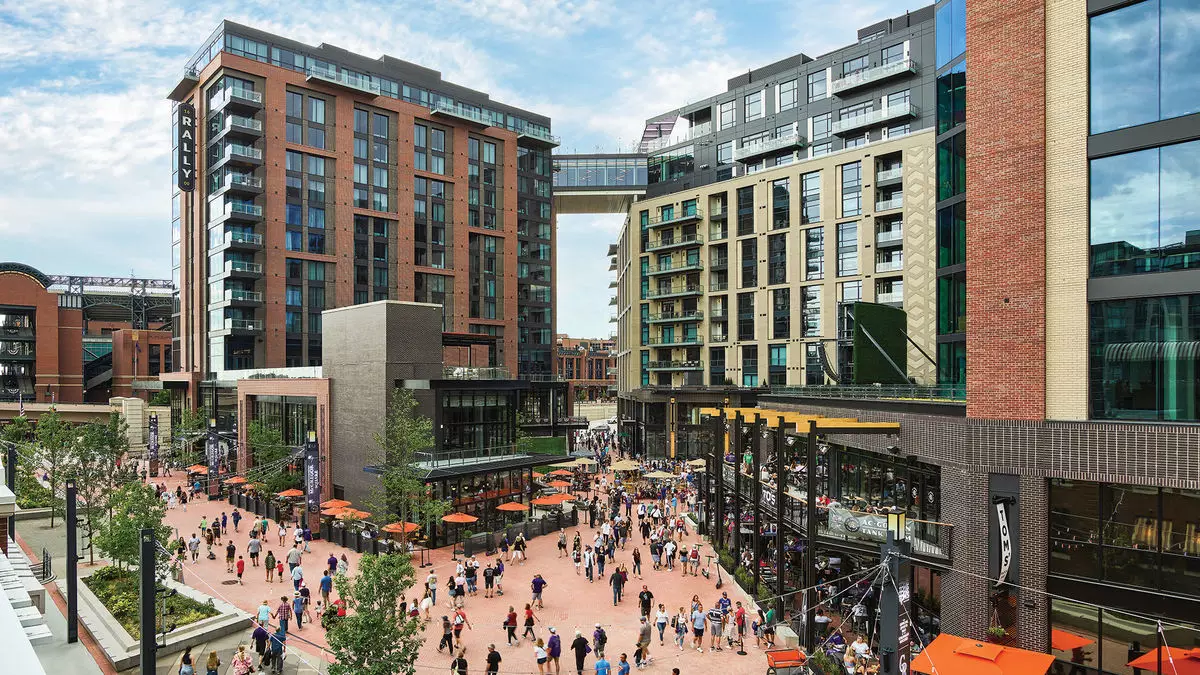The sports landscape is witnessing an exciting evolution as sports teams and hospitality ventures join forces to create immersive experiences that go beyond mere game attendance. The recent example of the New York Yankees’ visit to Denver illustrates just how far this trend has come. For fans of America’s pastime, the Rally Hotel at McGregor Square isn’t just lodging; it’s a central hub of excitement during the Memorial Day weekend. This revelation from Walter Isenberg, CEO of Sage Hospitality Group, highlights the growing recognition of sports tourism as a potent force. With the hotel situated adjacent to Coors Field and sporting a Rockies-centric design, it actively appeals to fans of both the local team and visiting franchises.
This is not merely a hotel; it exemplifies how sports organizations are increasingly embracing real estate to enhance fan loyalty and tap into burgeoning markets. Properties like the Rally Hotel signify a movement where stadium-adjacent projects are designed as destinations in their own right. With features reminiscent of the ballpark—like artistic displays celebrating baseball and themed amenities—the hotel addresses both the nostalgia of fans and the need to attract guests year-round.
The Purpose-Driven Venue: Beyond the Game
One of the pressing challenges for any sports-centered venue is maintaining consistent engagement when teams are away. Yet, rather than limiting itself to game days, the Rally Hotel cleverly incorporates a myriad of community activities. From movie nights to outdoor yoga sessions and even winter ice skating, McGregor Square is positioned as a dynamic environment, weaving itself into the everyday fabric of the community. Isenberg’s insight into treating the hotel as an asset meant for year-round use captures the essence of innovation in this space: creating value beyond the conventional seasonal sports calendar.
By diversifying entertainment offerings and making that a key focus, developers can ensure that such venues thrive even when the local teams are on the road. This holistic approach invites both fans and non-fans alike to engage with their surroundings, blending entertainment, leisure, and the spirit of community involvement.
Economic Considerations: The Lucrative Sports Tourism Market
The financial implications of marrying sports with hospitality cannot be understated. According to Technavio, the global sports tourism sector is projected to inject $701.6 billion into the economy between 2025 and 2029. This isn’t just speculation; it aligns with observed trends where properties near sports venues gain a competitive edge. The strategic location offers a dual benefit—higher occupancy rates and premium pricing. Whether it’s an evening game or a convention connected to the sport, the present-day traveler prioritizes proximity, and savvy operators recognize this desire.
Inevitably, the success of this blended model has led to numerous replicable developments. The Battery Atlanta, home to the Atlanta Braves, serves as an excellent case study in combining hospitality with sports entertainment. The project’s integration of living, shopping, and dining enhances the overall visitor experience, emphasizing that such developments can foster a vibrant community around sports enthusiasm.
Fostering Loyalty: Brand Partnerships and Collaborations
To ensure that the merging of sports and hospitality achieves maximum impact, strategic partnerships are paramount. Major hotel chains have recognized the value of aligning themselves with sports franchises. Collaborations, such as Marriott’s relationship with the NCAA and Hilton’s tie-in with McLaren Formula 1, underscore the essence of tapping into vast reservoirs of fan loyalty.
This connectivity not only raises a brand’s profile but also builds trust and community among sports fans, enriching the overall experience. As hoteliers invest in sports complexes, both sides stand to benefit tremendously—hotels enjoy increased demand, while teams enhance their visibility and strengthen their fan bases.
Expanding Horizons: The Future of Sportspitality
The ripple effects of this trend extend beyond traditional sports leagues. New ventures such as Sports Illustrated Resorts, aimed at creating resorts adjacent to university campuses with strong fan bases, gestures towards a new frontier in sports tourism. Such developments promise to offer devoted fans a comprehensive experience, blending hospitality with school spirit while embedding themselves in local cultures.
The potential for synergy between sports teams and hospitality is vast. Communities can thrive economically and culturally when built around sports, providing a unique identity while attracting diverse audiences. This isn’t just about hotel rooms filled during game nights—it’s about creating vibrant ecosystems driven by passion, loyalty, and community spirit, contributing to a broader, richer engagement with sports as a whole.


Leave a Reply